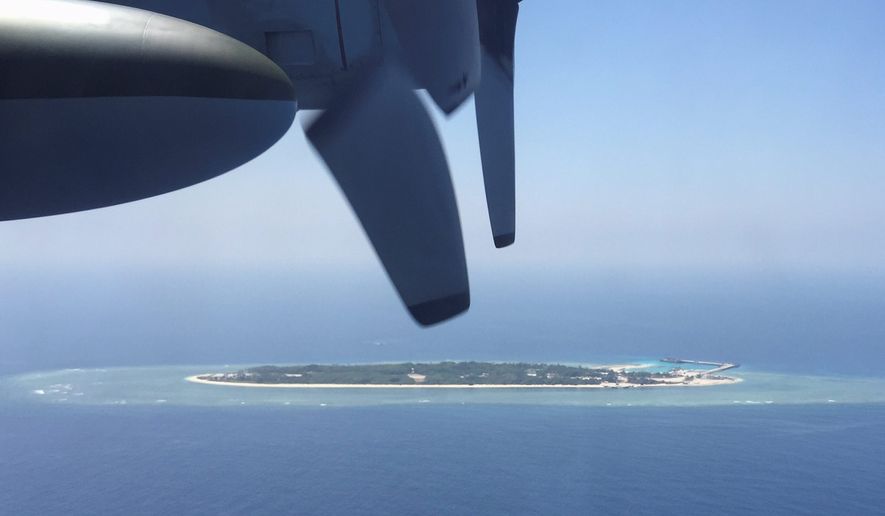A retired Japanese admiral says President Obama’s strategy to neutralized China’s territorial claims to a man-made reef in the South China Sea are almost entirely meaningless — and may actually serve to embolden the communist regime.
Retired Japan Maritime Self-Defense Force(JMSDF) Rear Admiral Sumihiko Kawamura, the former vice commandant of the Joint Staff College, told The Sekai Nippo that “the Obama administration’s strategy of freedom of navigation is intended to be a gesture indicating they do not recognize the seas around the artificial islands as territorial waters, but I think this is almost entirely meaningless.
“What the U.S. is currently doing is called ‘innocent passage.’ Innocent passage refers to passage through a nation’s territorial waters by another nation’s military vessels within 12 nautical miles of the shore, taking only the minimum of action necessary and without causing any alarm or intimidation. The passage of military vessels is permitted so long as it is innocent passage. According to the statements by US Department of Defense, U.S. Navy vessels are making innocent passage. That is to say, their actions imply that they recognize the area as Chinese territorial waters, which has the opposite of the intended effect.”
The retired admiral said allies standing against China in the South China Sea need to make more provocative military actions.
“They must be actions that are not innocent passage, namely circumnavigating the artificial islands in military vessels, stopping, dropping anchor, and launching aircraft.
“That said, it is no use leaving it up to the U.S. alone. Any military response must be done jointly, with participation by Japan and other nations around the world such as Australia. What I mean to say is that China is currently explaining the military actions of the U.S. to its citizens as the US unilaterally disturbing the peace in the South China Sea, and it is using this to stir up domestic discontent. Therefore, rather than the U.S. acting alone, there must be multinational action to make the people of China understand that it is the international community as a whole which stands in opposition.”
PHOTOS: Take that, China — check out the U.S. Navy's nuclear submarines
Mr. Kawamura said involvement by more nations will help keep the peace.
“A standoff solely between the militaries of China and the U.S. creates the risk of a conflict breaking out in the area. On May 17th, two Chinese Navy fighter jets conducted an unusually close interception, coming to within 15 meters of a U.S. Navy reconnaissance plane patrolling international airspace over the South China Sea, but this was likely a retaliatory measure against the U.S. military. If military vessels from other nations are involved in the freedom of navigation strategy, then not even China will be able to do anything about it.
China’s strategy of slowly but methodically building up military installations in the Spratly Islands, the Scarborough Shoal, the Fiery Cross Reef and other strategic points within the sea, coupled with Beijing’s increasingly assertive territorial claims, has elevated tensions in Washington and unsettled U.S. allies in the region.
A version of this article was first published in The Sekai Nippo




Please read our comment policy before commenting.